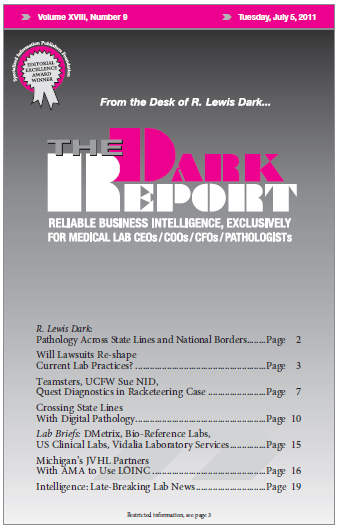CEO SUMMARY: For the second time in recent years, Quest Diagnostics Incorporated and Nichols Institute Diagnostics (NID) face a lawsuit alleging problems with a number of diagnostic test kits that were manufactured and sold by NID going back to 2000. The plaintiffs are two unions—the Teamsters and the United Food and Commercial Workers Union—who have …
Teamsters, UCFW Sue NID, Quest In Racketeering Case Read More »
To access this post, you must purchase The Dark Report.


